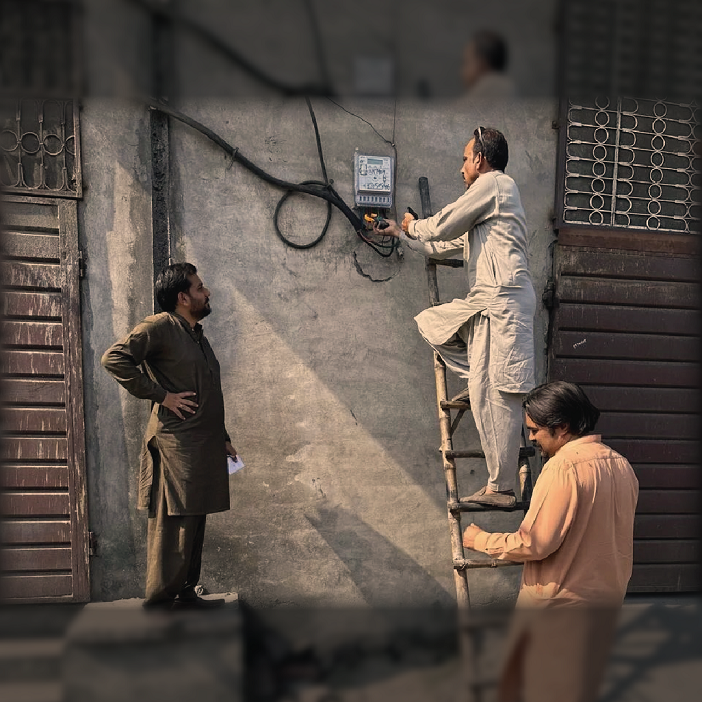Muhammad Usman is standing outside the Faisalabad Electric Supply Company (Fesco) office holding an electricity bill. The company had sent him a bill of Rs8,140 for 202 units in June, which was Rs2,476 rupees for 133 units the previous month.
Usman, a resident of Babuwala area of Faisalabad, says Prime Minister Shehbaz Sharif has announced a Rs50bn relief for the next three months for the consumers who use up to 200 units of electricity. However, he will miss it due to overbilling by Fesco.
The government has fixed relatively low electricity rates (Rs10.06 per unit) for those who fall in the ‘protected category’ i.e., those who consume less than 200 units of electricity per month. If the meter goes even one unit above 200 mark in a month, the consumer is removed from this category for the next six months.
Domestic consumers who were kicked out of the protected category by the electricity distribution companies (DISCOs) will now be penalised with additional payments for six months. The consumers are in hot water despite the PM’s notice and the Federal Investigation Agency’s inquiry into the overbilling complaints.
However, all DISCOs have recently started using ‘Pro rata’ software to send the bills based on 30 or 31-day average readings. Due to this software, millions of users, including Usman, have fallen victim to overbilling.
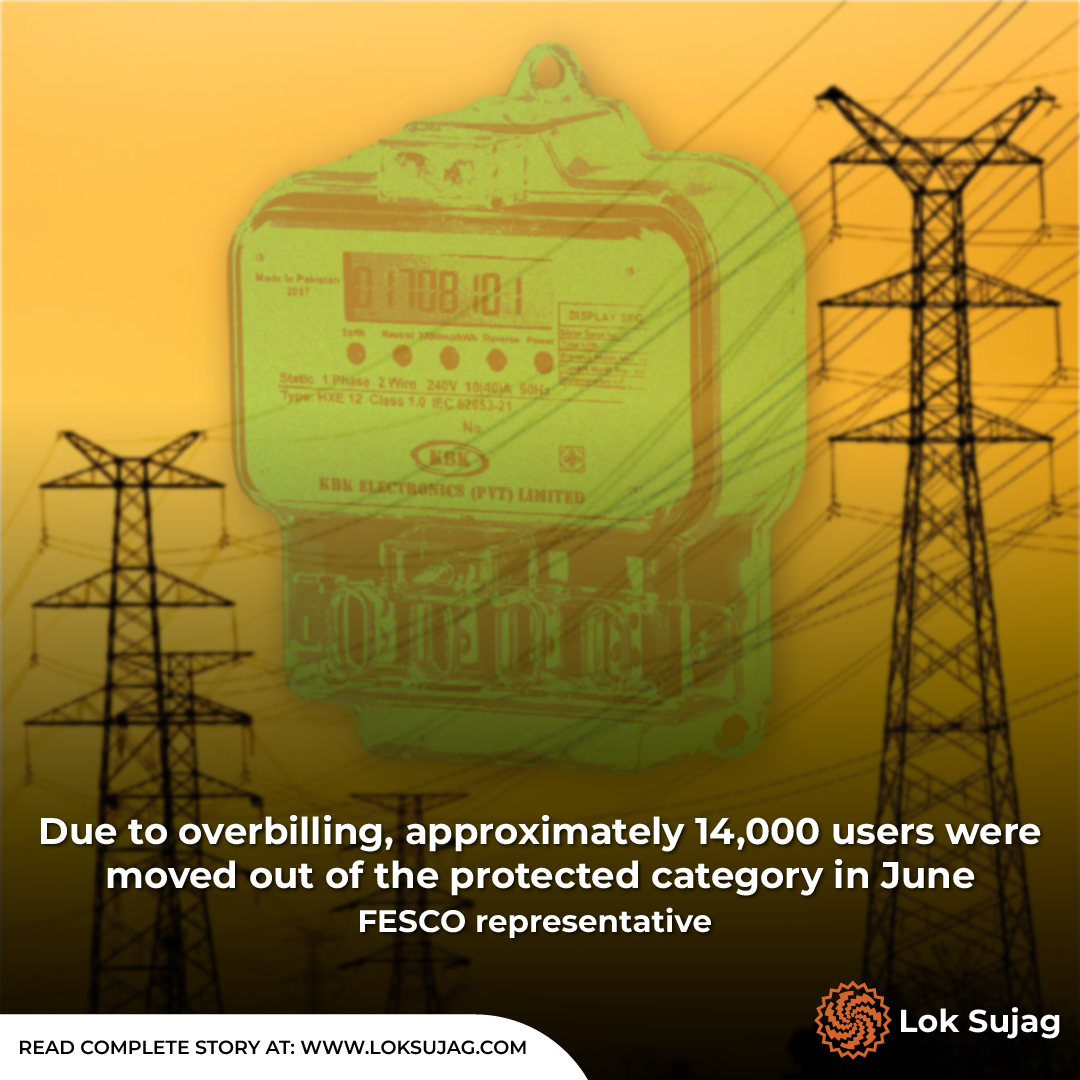
Fesco spokesperson Tahir Mehmood Sheikh admits that about 14,000 consumers were removed from the protected category in June due to overbilling. However, he claims that they were issuing revised bills to the affected consumers while they will be given relief in the next month’s bill.
What is pro-rata software?
Faisalabad-based software developer Muhammad Asim explains that ‘Pro rata’ software is designed for automated calculations, usually for accounting, business costs and revenues, ensuring fair or accurate distribution of resources.
“Pro rata is usually used by subscription-based businesses, mobile and internet service providers and insurance companies.”
He mentions some complications in the software along with its accuracy and efficiency and that the electric companies might be facing overbilling complaints due to these complications.
How did overbilling issue arise?
Journalist Amir Naveed Chaudhry who monitors the DISCOs affairs says that according to the investigation carried out by Nepra (National Electric Power Regulatory Authority), 326,350 protected customers were affected in just one month (June) after the ‘Pro rata’ implementation. Sixty-two percent of these consumers belong to four companies in Punjab.
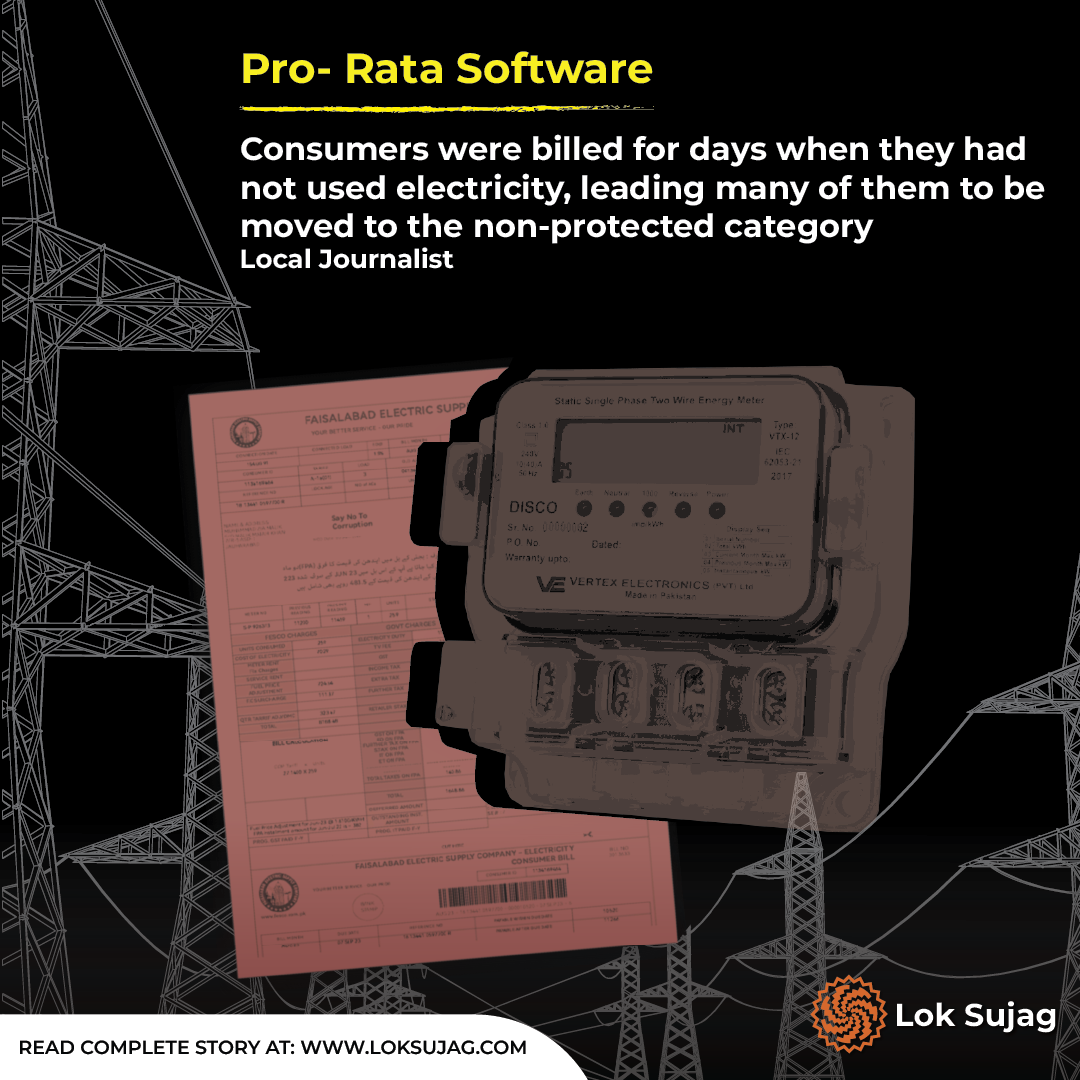
“The victims include 49,795 customers of Lesco (Lahore Electric Supply Company), 27,645 of Fesco, 62,765 of Mepco (Multan Electric Company) and 63,265 of Gepco (Gujranwala Electric Power Company).”
According to Chaudhry, Nepra had conducted an inquiry into the companies’ overbilling last year after which the ‘pro rata’ system was launched. However, now this system is being blamed for overbilling though the meter reading system is the same.
“Several consumers moved into the non-protected category after receiving the bill for unused electricity.”
He says the meter reader takes an average reading of 4,000 to 5,000 meters in a month. About 150 to 200 meter readings are noted daily to be fed into the batch-wise system every day.
“The billing system, instead of issuing a bill for a consecutive 30-day period, calculated for the entire month from the first day of the month to the 30th. This resulted in the system adding extra 10 days of billing for the meters that had completed their 30-day reading cycle on the 20th.”
According to him, not only the protected customers but those consuming 300 or more units also faced the loss due to the slab change.
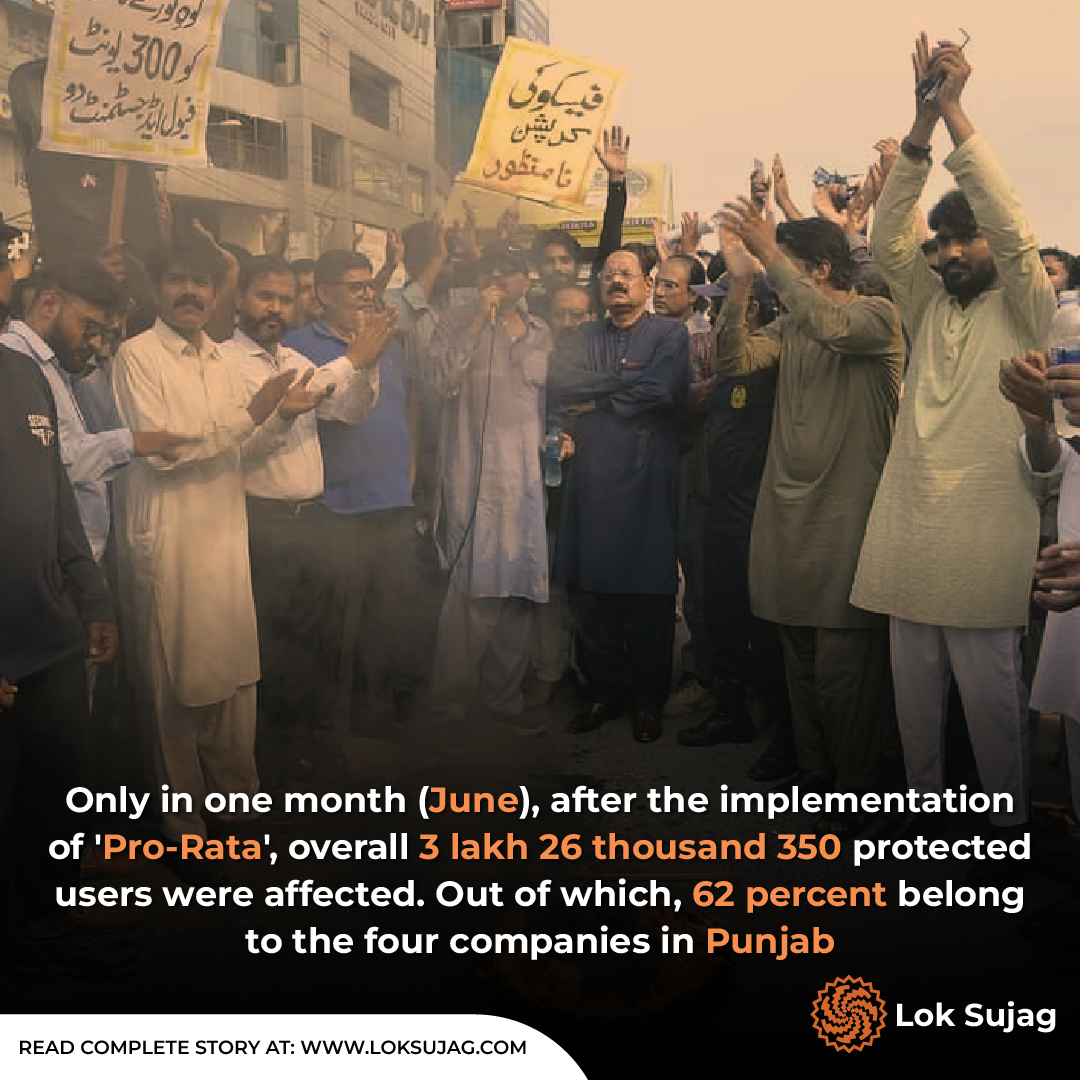
Aamir Naveed Chaudhry thinks that DISCO’s failure to synchronise the meter reading system and software properly has led to the overbilling issue.
Conflicting claims of distribution companies
Lesco spokesperson Rai Masood Ahmad denies any overbilling in Lahore.
“Previously, the meter readers could adjust the billing days for personal gain but now, due to the pro-rata software, this practice has been eliminated,” he claims.
However, Mepco spokesperson Jamshed Niazi confirms that around 49,000 of its protected customers were affected by the overbilling.
Multan-based journalist Rana Bilal Ahmed considers the Mepco number less than the actual number of the citizens affected by overbilling.
“Mepco has not provided any relief to the affected customers. It tells them that an inquiry is underway. If the overbilling is proved, the relief will be provided in the next month’s bill,” he says,
Gepco spokesperson Rana Muhammad Jahangir claims that his company’s customers have registered no complaints of overbilling. However, his claim seems to be false as last year’s inquiry conducted by Nepra revealed that Gepco had overbilled more than 1.65m customers in just two months (July, August).
Gujranwala-based journalist Shehbaz Khan also confirms that bills are sent based on average readings without Gepco readings, which has increased overbilling complaints.
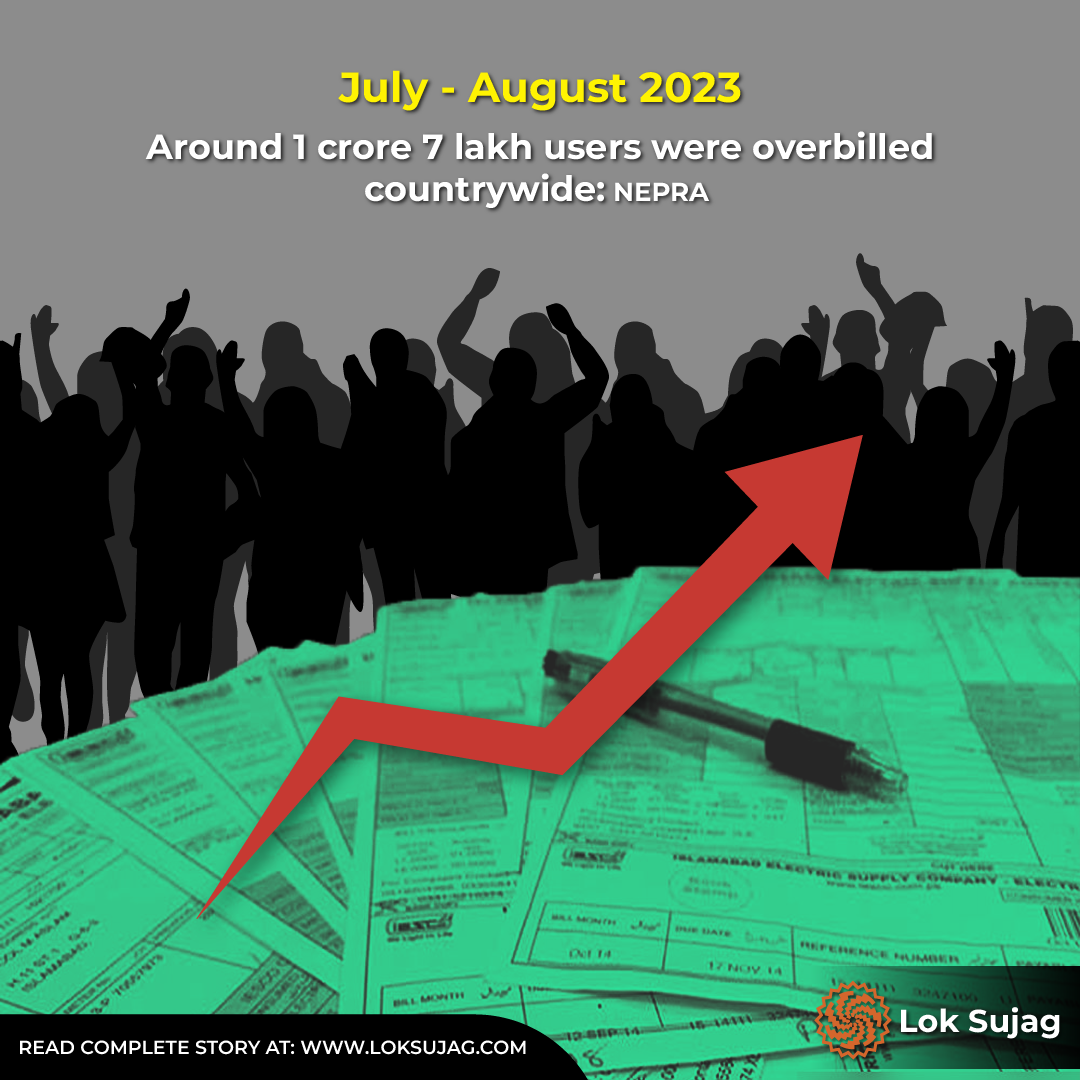
“People are selling their properties to pay power bills while the government is refraining from taking any action against DISCOs,” he laments.
What is the purpose of overbilling?
Amir Naveed Chaudhry explains that overbilling commenced after the power transmission system was transferred to distribution companies.
Rising electricity costs are too much for people as it has become difficult for them to pay the actual bill.
“The primary cause of overbilling is the unrealistic targets given to DISCOs at the beginning of each fiscal year. Since the fiscal year ends in June, DISCOs engage in increased overbilling during this month to show reduced losses.”
Chaudhry adds that complaints of overbilling are more in Punjab as the payment rate of electricity bills in the province is higher than in other provinces.
“Consequently, consumers in Punjab also have to shoulder the financial burden of unpaid electricity bills of the consumers of other provinces.”
This is also confirmed by DISCO’s annual performance evaluation report by Nepra.
The latest valuation report available on Nepra's website is for the year 2022-23, which declares that DISCOs incurred a loss of Rs166bn in electricity transmission and distribution while Rs263bn in recovery.
Also Read

Energy Overhaul: light for our (power) blackouts
The report admits that DISCOs have not been able to achieve the target of affordable, reliable and sustainable service access to consumers under Section 27-A of the NEPRA Act. The main reason is the lack of reforms in the power sector and the poor performance of DISCOs.
What is the solution?
Aamir Naveed Chaudhry suggests that avoiding setting unrealistic targets for DISCOs is the key to getting rid of overbilling.
“No distribution company can eliminate 100pc losses, nor can 100pc recovery be made. This consistent pressure cannot let the overbilling issue be resolved.”
On the other hand, the Nepra report emphasized privatisation under public-private partnerships by dividing them into smaller units (institutes) or handing them over to the provinces. This initiative aims at improving the efficiency of the distribution companies.
Last year, around 1.7m consumers faced the overbilling issue in July and August, as revealed in Nepra’s investigation.
However, the Power Division rejected the report preventing action against the power distribution companies.
The prime minister has, once again, indicated that an investigation will be conducted against the DISCOs responsible for overbilling and action will be taken against those found guilty. However, had action been taken on Nepra's report last year, millions of consumers might not have faced overbilling this year.
Published on 18 Jul 2024
